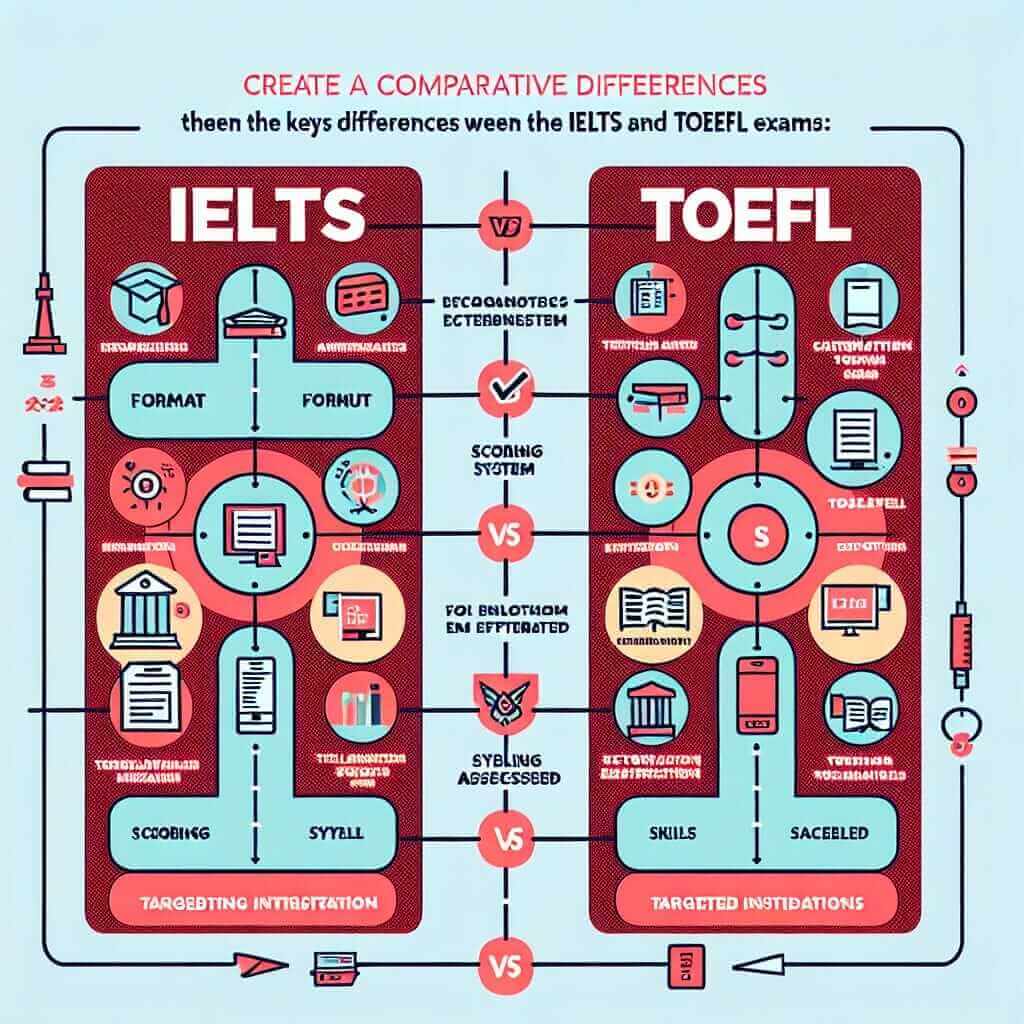Choosing the right English proficiency test for your academic or professional goals can be a daunting task. Two of the most widely recognized options are the IELTS (International English Language Testing System) and the TOEFL (Test of English as a Foreign Language). Both assess your English skills, but they differ in format, scoring, and even the type of English they emphasize. This often leads to a crucial question: Which test provides a more accurate reflection of your true English language abilities?
Understanding IELTS and TOEFL
Before we delve into the accuracy debate, let’s clarify what each test evaluates:
IELTS: Favored by countries like the UK, Australia, and Canada, IELTS assesses English proficiency across four modules: Listening, Reading, Writing, and Speaking. It utilizes a band score system (from 1 to 9) with more emphasis on practical, everyday English communication.
TOEFL: Primarily preferred by American institutions, TOEFL focuses on academic English, evaluating your ability to understand and use English in a university setting. It also tests the four core skills but uses a points-based scoring system (out of 120).
The Accuracy Dilemma: A Matter of Perspective
The notion of “accuracy” in language testing is complex and subjective. Neither test is inherently “more accurate” than the other. The key lies in understanding their differences and aligning them with your specific needs and goals.
1. Focus and Context: Academic vs. Practical English
- TOEFL: Excels in measuring your ability to comprehend academic lectures, participate in classroom discussions, and write essays on scholarly topics.
- IELTS: Places a greater emphasis on evaluating your everyday communication skills, such as understanding conversations, reading newspapers, and writing letters.
Example: Imagine you need to explain a complex scientific concept in English. A high TOEFL score suggests you can articulate it clearly in an academic setting. A high IELTS score, however, might mean you can explain the same concept in simpler terms to a layperson.
2. Format and Delivery: Computer-Based vs. Human Interaction
- TOEFL: Entirely computer-based, even the speaking section, where responses are recorded and evaluated later.
- IELTS: Offers both paper-based and computer-delivered options. Notably, the Speaking module involves a face-to-face interview with an examiner.
Consider this: Some test-takers find the TOEFL’s automated speaking section less natural, while others appreciate the absence of potential examiner bias. Conversely, the IELTS Speaking test allows for more natural interaction but introduces the element of human judgment.

Tips for Choosing the Right Test:
- Check Requirements: Start by researching the specific English proficiency requirements of the universities or organizations you’re targeting.
- Assess Your Strengths: Are you more comfortable with academic English or everyday communication? Choose the test that aligns with your stronger areas.
- Consider Test Format: If you thrive in technology-driven environments, TOEFL might be a good fit. If you prefer human interaction, IELTS could be a better choice.
Conclusion
The debate over “IELTS vs. TOEFL: Which is more accurate?” is ultimately a matter of perspective and individual needs. Both tests are reputable assessments of English proficiency, each with its strengths and target areas. By carefully considering your goals, preferred learning styles, and the specific requirements of your chosen institutions, you can confidently select the test that best reflects your true English language capabilities.